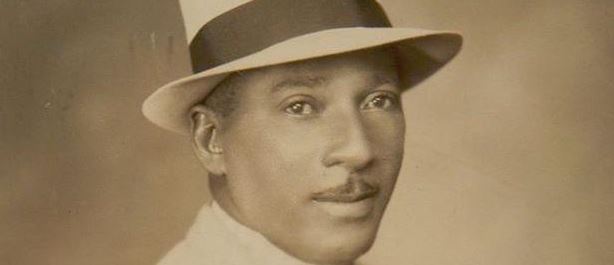This post is also available in:
 Español
Español
Rafael Hernández wrote “Lamento Borincano” and “Preciosa” over 80 years ago! Yet these songs are as relevant today as they were in the 1930’s.
As we commemorate this month the 125th birthday of the great Puerto Rican songwriter, we find his songs relevant to the post-Hurricane Maria situation we are living in Puerto Rico today.
Puerto Rico in the 1930’s
As in the United States, Puerto Rico was in the middle of the Great Depression. Let’s remember that entering the 3rd decade of the 20th century, the island was still getting used to its new colonial status under and assimilating a new culture.
At that time Puerto Rico’s governor was appointed by the POTUS (President of the United States) and most of them, if not all, only spoke English. Additionally, the US was changing the island’s economy from a consumer one (of producing only what we would consume locally) to an industrial one of producing for exports.
The recording industry was starting to flourish, and radio was starting to become a medium to communicate to the masses, as more households were starting to get one of these new apparatuses of the 20s.
Because of all of these circumstances, patriotic sentiments were emerging in Puerto Rican literature as well as in music.
“Lamento Borincano”
Rafael Hernández wrote “Lamento Borincano” between 1929 and 1930 while living in New York. Some sources argue it was written in 1937 while he was in Mexico.
His song captures the economic difficulties of the Puerto Rican, and the island during the depression. In 1929 Puerto Rican per capita monthly income was $122. It would take 10 years for it to get back to that level.
“Pasa la mañana entera
Sin que nadie quiera
Su carga comprar,
Su carga comprar.
Todo, todo está desierto,
Y el pueblo está muerto
De necesidad, de necesidad.
Se oye este lamento por doquier,
De mi desdichada Borinquen, si;
Y triste, el, jibarito vá
pensando así, diciendo así
Llorando así por el camino;
¡Que será de Borinquen
Mi Dios querido!
¡Que será de his hijos
Y de mi hogar!”
However the song also captures a patriotic spirit of hope for the island.
“Borinquen, la tierra del edén
La que al cantar, el gran Gautier
Llamó la perla de los mares.
Ahora que tu te mueres
Con tus pesares
Déjame que te cante yo tambien.
Yo también.”
Today’s situation post-Hurricane Maria perhaps has thrown us back to that time. Small businesses, which represent 80% of private-sector employment, are mostly closed or struggling to survive. The island is still dark without power, and many ponder about the future of Borinquén (a word rooted in the Taino Indians’ pre-columbine name for the island), their sons, and their home.
Another curious fact is that Rafael Hernandez wrote Lamento Borincano within a couple of years of Hurricane San Felipe. This is the hurricane most compared to Hurricane Maria in intensity, path, and destruction in Puerto Rico.
“Preciosa”
The patriotic homage to Puerto Rico was written by Rafael Hernandez a few years after Lamento Borincano. It is said it was El Jibarito’s response to the song written by his friend Pedro Flores titled “Sin Bandera“.
Rafael wanted to write a beautiful patriotic song, and Preciosa came to his pen.
Preciosa (Beautiful) highlights the beauty of the island, of its women, and of its roots in Spain and the native Taino Indians.
Towards the end, the song reflects some rebellious emotions of overcoming the black evil of the imperialist tyrant, in obvious reference to the United States.
“Preciosa te llaman los bardos
Que cantan tu historia
No importa el tirano te trate
Con negra maldad
Preciosa seras sin bandera
Sin lauros, ni gloria
Preciosa, Preciosa
Te llaman los hijos de la libertad”
It’s obvious that today the feelings towards independence are not a fraction of what they were in the 30s.
However, the feelings of patriotism and of overcoming major obstacles are still relevant today in post-Hurricane Maria Puerto Rico.
Marc Anthony closed a Hurricane Disaster Relief television fundraiser with his rendition of Preciosa, in which he adds at the end lyrics reflecting how proud he is of being Puerto Rican and how much he loved Puerto Rico.


[…] trombone, clarinet, tuba, violin, piano, and guitar) that traveled throughout the island. “Lamento Borincano” and “Preciosa” probably came from those […]